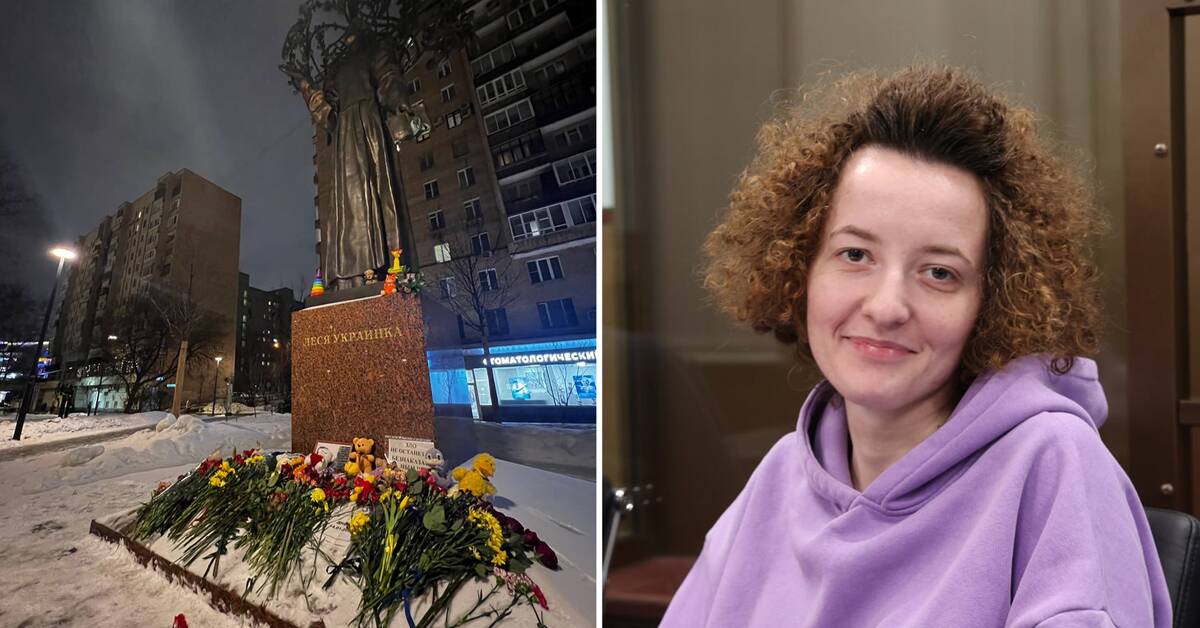A statue depicting the Ukrainian poet and writer Lesya Ukrainka in central Moscow was converted into a memorial site.
At the monument, Muscovites have left flowers and stuffed animals to honor victims of the attack in Dnipro, where at least 46 people lost their lives.
Four people who had come to honor the victims and two other passers-by were arrested by Russian police, according to the human rights organization OVD Info.
One of those arrested is Jekaterina Varenik, 25. She stood in front of the statue with a sign that read: "Ukrainians are not our enemies, but brothers."
Jekaterina Varenik was born in Ukraine but the family moved to Russia when she was two years old.
The family has relatives and friends left in the Luhansk region.
- Before the war, we vacationed in Ukraine.
There are our roots.
We are against what Russia is doing to our brother people in Ukraine, says her father, Aleksej Zjerlitsyn, to SVT.
Because of her action, Jekaterina Varenik has been sentenced to twelve days in prison for "violent resistance", as well as to a fine of the equivalent of 7,000 Swedish kronor for "discrediting the Russian army".
In Russia, one can be sentenced to arrest for up to 30 days, which means being locked in a cell with the aim of isolating a person from society.
There is no equivalent in Swedish law.
- The law on violent resistance is used by police officers in Russia when they attack activists, says Marija Kuznetsova, spokesperson for the Russian human rights organization OVD Info.
Get caught - don't want to attract attention
Memorial sites have emerged in several different Russian cities.
Flowers, lanterns and pictures of the blown-up apartment building in Dnipro have been placed next to statues depicting Ukrainian linguist Taras Shevchenko.
But no more people are said to have been arrested.
- Russian authorities decided to let people honor the Ukrainian victims in peace, because mass arrests attract more attention in the international media, says Marija Kuznetsova at OVD Info.
See more in the clip.

